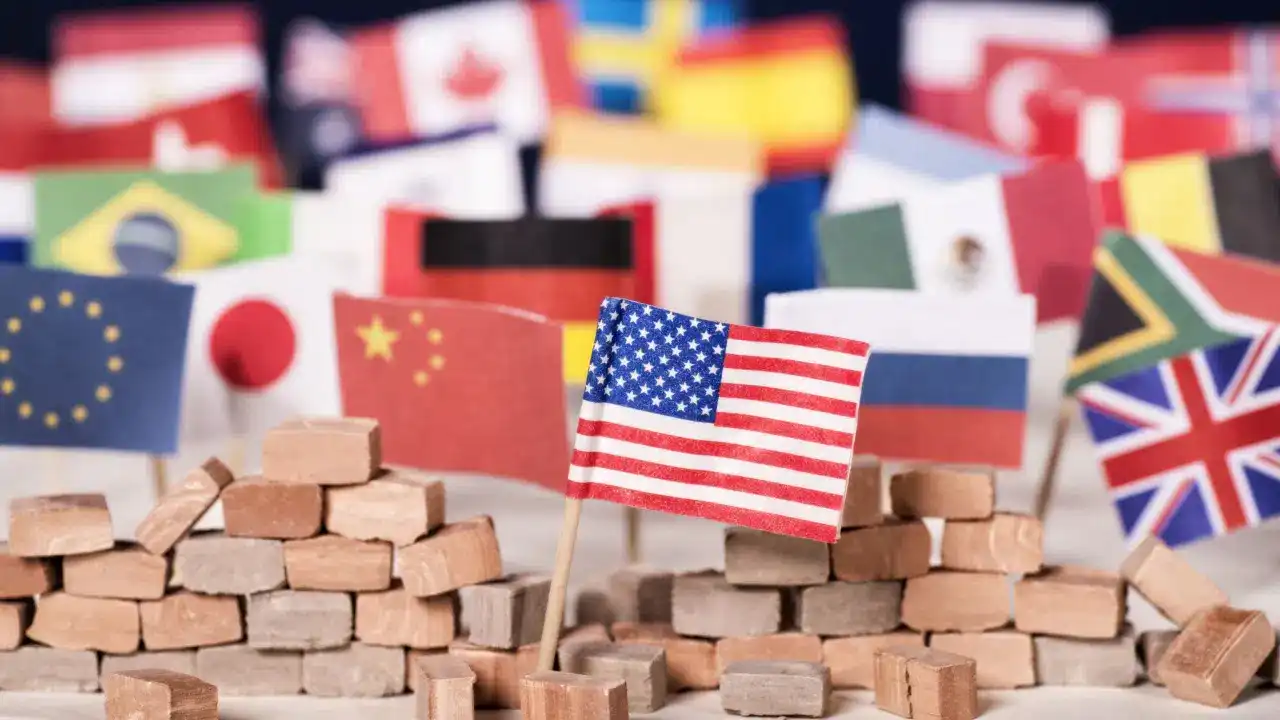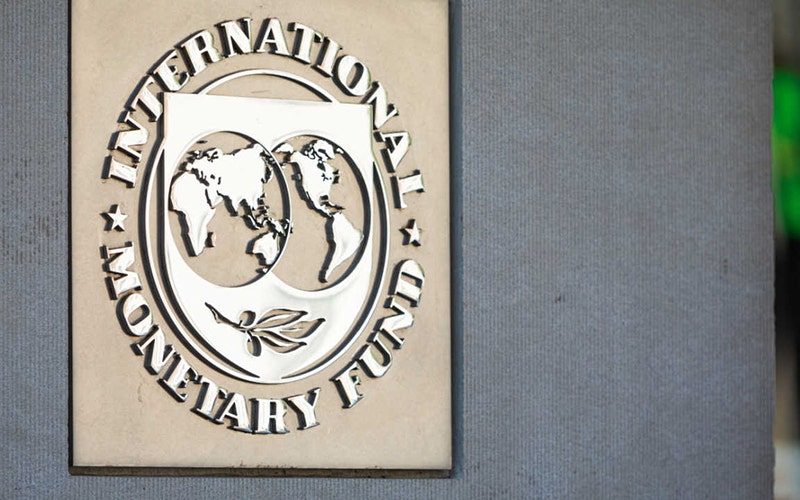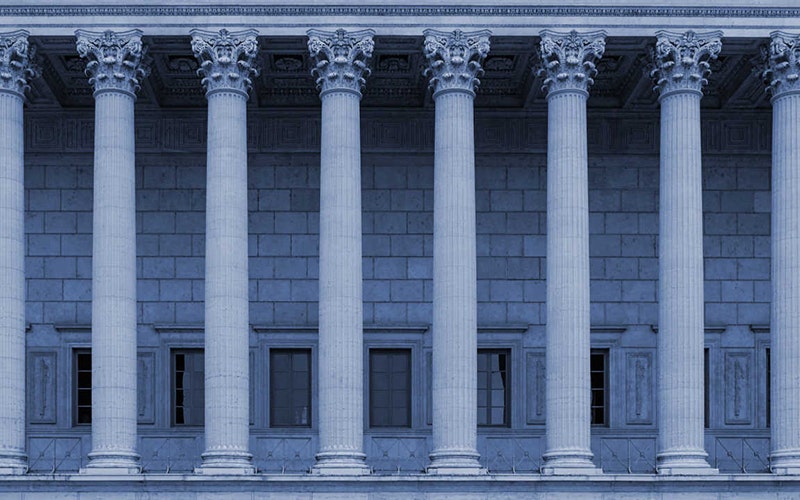Foreign policy is the mechanism national governments use to guide their diplomatic interactions and relationships with other countries. A state’s foreign policy reflects its values and goals, and helps drive its political and economic aims in the global arena. Many foreign policies also have a strong focus on national and international security, and will help determine how a country interacts with international organisations, such as the United Nations, and citizens of other countries.
Foreign policies are developed and influenced by a number of factors. These include:
-
the country’s circumstances in a number of areas, including geographically, financially, politically, and so on
-
the behaviour and foreign policies of other countries
-
the state of international order and affairs more widely (for example, is there war or unrest? Are there trade alliances to take into consideration?)
-
plans for advancement, such as economic advancement or technological advancement
Guided by foreign policy, diplomats and diplomatic bodies can work across borders to tackle shared challenges, promote stability, and protect shared interests.
A nation’s foreign policy typically works in tandem with its domestic policy, which is another form of public policy that focuses on matters at home. Together, the two policies complement one another and work to strengthen the country’s position both within and outside its borders.
Examples of foreign policy
The United Kingdom
Foreign policy in the United Kingdom is overseen by Foreign, Commonwealth and Development Office, which is led by the Foreign Secretary.
Recent priorities for the UK’s foreign office have included imposing sanctions on Russia due to its ongoing conflict with Ukraine, and introducing a new Northern Ireland Protocol Bill. The UK has also continued its ongoing action against the regime in Syria.
Following the United Kingdom’s withdrawal from the European Union (EU) – made official in 2020 – UK policymakers have been focused on negotiating new trade agreements with international partners.
The United States
American foreign policy is overseen by the U.S. Department of State, which says its mission is to “protect and promote U.S. security, prosperity, and democratic values, and shape an international environment in which all Americans can thrive.”
Domestic bills and legislation connected to foreign policy are managed by the United States House Committee on Foreign Affairs, a standing committee of the U.S. House of Representatives that has jurisdiction over matters such as foreign assistance, HIV/AIDS in foreign countries, and the promotion of democracy. It also has six standing subcommittees that oversee issues connected to human rights practices, disaster assistance, international development, and so on in different regions of the world, such as Asia or the Middle East.
Recent events in American international affairs have included ending its war in Afghanistan, and affirming its support for a two-state solution to the ongoing conflict between Palestine and Israel.
China
Chinese foreign policy consists of the following elements:
-
Maintaining independence and state sovereignty.
-
Maintaining world peace.
-
Friendly relations.
-
Enhanced unity and cooperation between developing countries.
-
Increasing its opening and modernisation efforts.
China’s foreign policy also stipulates that China not engage in diplomatic relationships with any country that formally recognises Taiwan, which China does not recognise as a separate nation.
Nigeria
Nigeria’s foreign policy is lauded for strengthening its position and power regionally and internationally. Its objectives are enshrined in its constitution, and include:
-
the promotion and protection of the national interest
-
the promotion of African integration and support for African unity
-
the promotion of international co-operation for the consolidation of universal peace and mutual respect among all nations, and the elimination of discrimination in all manifestations
-
respect for international law and treaty obligations, as well as seeking settlement to international disputes by negotiation, mediation, conciliation, arbitration, and adjudication
-
the promotion of a just world economic order
What is the difference between foreign policy and international relations?
International relations is a discipline of political science and can be considered one of the social sciences – it’s an area of academic study that examines the interactions between countries. Foreign policy, on the other hand, is a working template that guides how one country interacts with others.
Foreign policy in practice: impacts and consequences
How does foreign policy influence international politics?
Because foreign policies are developed to protect a nation’s interests and influence its dealings with other nations on the world stage, they have a direct impact on world politics. But it’s also fair to say that international affairs help shape foreign policies, too.
There are also a number of international organisations and non-governmental organisations (NGOs) that directly impact international relations and foreign policies, such as:
How does foreign policy affect the global economy?
Foreign policies can have a huge impact on the economy, both at home and abroad. While this is partially because policies often focus on the economic advancement of their nations, it’s also because almost all aspects of any foreign policy will have a knock-on effect on the wider global financial system.
For example, Foreign Policy magazine reported earlier this year that the war in Ukraine that was triggered by Russian President Vladimir Putin has already changed the world’s economy. Meanwhile, the United Kingdom’s withdrawal from the EU has had an ongoing financial impact and consequences for trade relationships throughout Europe (and even farther afield), while the COVID-19 pandemic lockdown measures taken in various countries has had a lasting effect on global supply chains and finances.
Help set public policy agendas
Explore public policy – including foreign policy and international studies – in greater depth with the 100% online Master of Public Administration (MPA) at the University of York.
One of the core modules on this flexible, part-time master’s degree is in policy analysis, so you will explore and analyse the complexity inherent in contemporary social and public policy development and reform. You will critically examine the role of ideas, interests, institutions, and actors in the policy process, and explore the wider social, economic, and political processes that shape contemporary policy-making. You will also gain conceptual and analytical tools to undertake advanced applied policy analysis in a range of local, national, and international policy settings.
Additionally, this postgraduate degree includes a module in policy research, enabling you to critically reflect on the strengths, limitations, and appropriateness of different research approaches and techniques, and helping you to acquire the skills needed to evaluate and commission research for public policy and administration contexts.
For further information about entry requirements, tuition fees, application deadlines, and independent research, please visit the programme page.








The information below is required for social login
Login to your Account
JOIN FOR FREE
Let’s begin with setting up your account to keep track of your progress